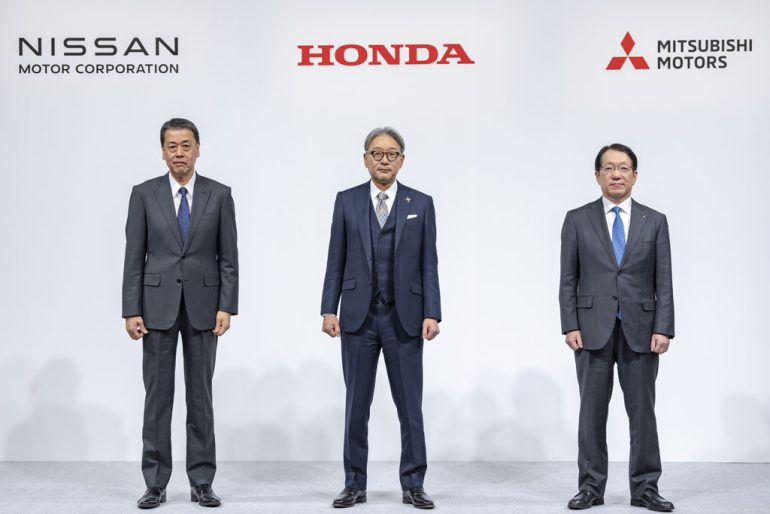
Nissan and Honda are taking a major step toward reshaping the future of the auto industry with plans to explore a potential partnership. The two Japanese automakers have signed a Memorandum of Understanding (MOU) to discuss combining their strengths under a single parent company. While nothing is final yet, this collaboration could help both brands tackle industry challenges like electrification, advanced technology, and shifting customer demands, all while staying competitive in a rapidly evolving market.
Nissan and Honda, two of Japan’s biggest automakers, are considering joining forces under a single parent company. While no final decision has been made yet, the companies are exploring how combining their strengths could help them stay competitive in a rapidly evolving automotive market. The MOU they signed allows them to take a closer look at how this potential partnership would work and what benefits it could bring.
Also, don’t forget that you can get discounted new car pricing with a free quote through qualified local dealer partners.

The automotive industry is changing faster than ever. From electric vehicles (EVs) and advanced software to self-driving cars, the future of mobility is all about technology. Nissan and Honda see this integration as a way to speed up their progress in areas like vehicle electrification and advanced safety systems.
At the same time, global challenges such as stricter emissions regulations, the push for carbon neutrality, and competition from tech-driven automakers like Tesla have created pressure to innovate more efficiently. By pooling their resources, the two companies hope to meet these challenges head-on and offer better products to customers.

If the integration goes ahead, Nissan and Honda plan to create a joint holding company by 2026. This would allow them to share expertise, technology, and operations while still maintaining their individual brand identities. Essentially, Nissan and Honda would continue to sell vehicles under their own names, but much of the behind-the-scenes work—like research, manufacturing, and supply chains—would be combined to save costs and boost efficiency.
For everyday car buyers, this partnership could mean access to more innovative and affordable vehicles. By sharing technology, Nissan and Honda could roll out new models faster and at lower prices. For example, future electric vehicles or hybrid models might feature advanced safety features and smarter in-car tech—all while remaining budget-friendly.

The companies have also emphasized a focus on creating vehicles that appeal to a global audience. Whether you’re in the market for a small, efficient car or a cutting-edge EV, this partnership could lead to a wider range of options.
The two companies will now spend the next year diving into the details of this potential integration. They’ll be looking at how to merge operations, share resources, and ensure the move benefits both brands. By January 2025, Nissan and Honda hope to decide whether to move forward with the partnership.
If approved, the integration will take several years to complete. The companies aim to list the joint holding company on the Tokyo Stock Exchange by August 2026, at which point both Nissan and Honda would become subsidiaries under this new parent company.
While nothing is set in stone yet, this partnership could be a big win for both automakers—and their customers. By working together, Nissan and Honda are positioning themselves as leaders in the race toward an electrified and connected future. As competition heats up, it’s exciting to see two automotive giants team up to create smarter, greener, and more innovative vehicles for the world.
Keep an eye on this space as we follow how this story unfolds!